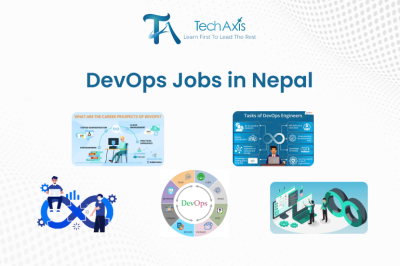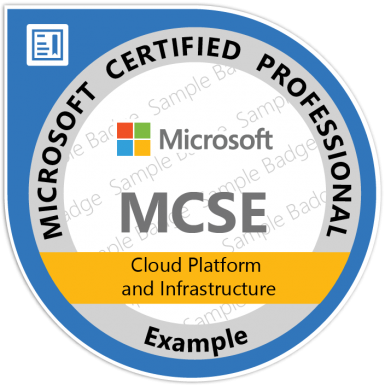
DevOps Jobs in Nepal
DevOps is a cultural and technical practice aimed at promoting collaboration between development and operations teams in order to speed up the process of building and deploying digital products. DevOps has the goal of bringing an ability to deliver a better software product to the market more frequently, and to increase the coordination between various teams as a continuous delivery model. Currently, there is a growing demand for DevOps professionals in Nepal because of the growth of the technology industry. Currently, there is a presence of many software development companies, start-ups and it service providers and this has called for proper working procedures to ensure that projects are completed on time and good products are produced.
DevOps is beneficial for organizations as it increases their effectiveness and productivity through decreasing the number of failures and time necessary for new versions’ creation. This is especially important in today’s environment where technology firms have to be very responsive and bring out software solutions to their clients and markets in the shortest time possible.
Developing the DevOps competence is regarded as one of the most valuable skills for individuals who work in the Nepali IT field. The remuneration package that various DevOps positions offer is relatively attractive as the entry-level positions pay between NRs. 70,000 to NRs 120,000 per month. This indicates that DevOps engineers who have worked for a number of years are likely to earn even more than the above stated amount since companies especially the established ones and new firms are so much in demand for these professionals. In general, employers are seeking the service of DevOps engineers more and more; this is due to steady growth of the IT industry in Nepal and the businesses needing effective, sustainable ways of development.
Skills Required for DevOps Jobs
Technical Skills:
Cloud Platforms: Experience with the utilization of cloud-service technologies, such as AWS, GCP, and Microsoft Azure for the management and deployment of a large-scale infrastructure.
Infrastructure as Code (IaC): Knowledgeable in tools such as Terraform, Ansible, and CloudFormation regarding the structure, creation, and management of IT structures.
Configuration Management: Understanding of the technologies like Puppet, Chef & Ansible for setting up systems from scratch and to ensure scalability.
CI/CD Pipelines: Admiration of Continuous Integration & Continues Deployment tools such as Jenkins; GitLab CI/CD, CircleCI for testing, integration as well as deployment.
Containerization: Having used Docker and Kubernetes in the progression of applications and managing the applications in distributed systems for better deployment and scalability.
Scripting: Working knowledge of the scripting languages like Bash, python, and PowerShell for automating the work, for managing environments and creating efficiency in the processes.
These technical skills are essential when it comes to managing and automating the SDLC so as to deliver fast and quality softwares while maintaining the stability of the infrastructure in the process.
Soft Skills:
Collaboration: Organically, DevOps works best as a culture of collaboration between development, operation, and many other departments and hence requires proper teamwork for the proper flow of work and its successful completion.
Problem-Solving: In complex environments, one has to be able to diagnose and correct problems in the shortest time possible if systems are to remain dependable and not develop more problems that cause downtimes.
Automation: DevOps practice is centered on the automation of processes and therefore having such a mindset is beneficial when it comes to streamlining a process thereby decreasing manual effort.
Continuous Learning: This is so because DevOps is dynamic with new tools and practices emerging because of the necessity to embrace change in practices.
Communication: Effective communication is essential whether it is between administrators, project managers, operations, and employees because in this way, all of them can understand all objectives, difficulties, and processes of each other, in order to exclude misunderstanding and to create the conditions for correct and accurate work on a project.
Popular DevOps Job Roles in Nepal
DevOps Engineer: A DevOps Engineer is one who is tasked with the responsibility of putting into practice DevOps approaches and tool sets the Software Development Life Cycle. CD delivers complex functions that facilitate organizational communication between development and operations teams, oversee CI/CD pipelines and streamline repetitive tasks to enhance the efficiency and dependability with which application is delivered.
Cloud Engineer: Cloud Engineers specialize in the creation of structures using cloud computing on the channels like AWS, Google, or Microsoft. They are to ensure that cloud structures are elastic, protected, and inexpensive so that business can run and deploy apps at the cloud.
Site Reliability Engineer (SRE): SREs are a field that combines aspects of software development with systems management to make certain that applications are trustworthy, extensible, and speedy. They apply automation to operate the infrastructures, to supervise the systems, and to deal with any occurrence. SREs are crucial to ensuring a system is always available to the end-users and at the same time minimizing on; downtime and other costs of operations.
DevOps Architect: A DevOps Architect is supposed to manage and implement cut across organizational DevOps strategies and structures. They implement processes which ensure that delivery is constant, automation is facilitated as well as integration with work processes. Looking at the self-organization and collaboration, DevOps Architects also act to ensure that all tools and processes available to the team are harmonized, thereby complementing organizational objectives in enabling software development and operations teamwork.
Challenges in DevOps Jobs:
Lack of Skilled Professionals: Another challenge is the lack of persons who have both development and operations experience, which is a skills deficit within the marketplace.
Cultural Resistance to Change: Challenges to the adoption of DevOps also include internal resistance; where teams and organizations resist these changes as it involves moving away from the conventional ways of carrying out activities within an organization.
Complexity of DevOps Tools and Technologies: But maintaining tools like CI/CD pipelines, containers, and cloud platforms may be challenging for small teams, and managing all of them can be overwhelming too.
Security Concerns: When security is integrated into the DevOps processes as DevSecOps, security becomes a challenge to the overall automation of processes.
Opportunities in DevOps Jobs:
High Demand for Skilled Professionals: That is why the talent gap is potential source of so many jobs for people with appropriate skills or experience.
Career Growth: Professionals can achieve lot of career growth by learning DevOps tools and practices.
Continuous Learning: The constant advances in DevOps provide job opportunity seekers with an official way of getting accustom with current advancements in technology and practices as they occur.
Rewarding Field: People working in DevOps field have a wide and constantly growing job opportunities and they create efficient and most often scalable environments for the development.
How to Break into DevOps in Nepal
Education and Training: One must first acquire fundamental knowledge to enter the field of DevOps and begin a career in this domain. Online courses and certifications available from Coursera, edX, and Linux Academy for instance enable learners to develop training in core DevOps tools including Docker, Kubernetes, and Jenkins among others. One can also consider finishing bootcamps that can be dedicated to cloud computing and automation to speed up the learning and get practical experience.
Building a Portfolio: One has to get job demands right for one to have the preferred DevOps portfolio. Automating tasks using scripting, or setting up CI/CD pipelines for your project, or deploying applications on cloud services are some of the tasks that may be useful. It also increases your experience and recognition in the DevOps community by contributing to open source projects.
Networking: Networking is important in order to gain the initial foothold in the occupation. Take the opportunity to meet the professional and share the experience and knowledge in DevOps by visiting different industry events, conferences, and DevOps meetups held in Nepal. LinkedIn and DevOps forums are some of the online communities where you will be able to get a mentor, ideas and employment opportunities.
Job Search Strategies: While looking for employment listings, use local classified sites including Merojob and JobAxle since the sites provide information on openings in computer technology fields. Best suited to startups and any business whose technological focus is on DevOps solutions. Moreover, it also help the people to find out some of the jobs which are not advertised for the public and get some reference also.
Case Studies of Successful DevOps Projects in Nepal
Over the last several years, DevOps has found its way into year industries in Nepal, hence playing a crucial role in the growth of the e-commerce industry, Fintech, and health sector. For instance, e-commerce organizations in Nepal have integrated continuous delivery life cycles that help in automate testing and the deployment process to deliver new features and updates in the market as soon as follows. This has enabled such businesses to succeed in their ability to counter competition through enhancing the overall time to market and increase customer response rates. DevOps has also been incorporated in the fintech industry in such ways as the use of Terraform and Ansible where companies automate infrastructure provision & management. This has improved the flexibility and security of financial services to make them run efficiently especially during booming periods.
Another industry in Nepal that has adopted DevOps is the healthcare industry as it enhanced the dependability and the capability of the healthcare platforms. For instance, in the health sector, patients records, minimal interruption in service delivery and even telemedicine practitioners can respond better, and provide critical healthcare services seamlessly.
DevOps has had a strong influence on the businesses in Nepal. Overall it has been seen that through operational efficiency, it has been possible to bring down expenses, improve product portfolio and have increased customer satisfaction. From the social and economic view, the implementation of DevOps has facilitated the enhancement of the speed of digital transformation that in return supports the development of the IT segment of Nepal, creates employment, and enhances the availability of quality services in different business domains.
Future Trends in DevOps in Nepal
Emerging Technologies:
Serverless Computing: Reduces infrastructure management complexity and costs by enabling applications to run without managing servers.
Artificial Intelligence (AI): Enhances DevOps by automating tasks like monitoring, anomaly detection, and predictive analytics.
Low-Code/No-Code Platforms: Accelerates application development and deployment by minimizing coding requirements, making it easier to build and iterate on software.
DevOps and Security:
DevSecOps Practices: Integrates security throughout the DevOps lifecycle, automating security checks and ensuring early detection of vulnerabilities.
Potential Job Roles and Skills:
Security DevOps Engineer: Focuses on integrating and managing security within DevOps workflows.
Cloud Security Architect: Specializes in designing and implementing security strategies for cloud-based infrastructures.
DevOps Automation Engineer: Utilizes automation and AI to streamline and enhance DevOps processes.
Conclusion
DevOps is becoming increasingly crucial in Nepal as businesses seek to enhance efficiency, scalability, and rapid deployment. Essential skills for DevOps professionals include expertise in cloud platforms, automation tools, and scripting, alongside soft skills like collaboration and problem-solving. Popular job roles such as Security DevOps Engineer, Cloud Security Architect, and DevOps Automation Engineer offer promising career paths. While challenges such as the talent gap and security concerns exist, opportunities abound for those who are proactive in building their skills and networks. Aspiring DevOps engineers should focus on gaining relevant certifications, building a strong portfolio, and networking within the industry. With the integration of emerging technologies like AI and serverless computing, the future of DevOps in Nepal looks bright, with continued growth and evolving trends expected to drive demand and create impactful career opportunities.
Additional Considerations:
Variations of jobs related to DevOps markets as per the regions are present in Nepal. Kathmandu has the most opportunities and better opportunities and roles available because it has established itself as the technology capital of Nepal, and the Pokhara market is growing gradually and is expected to provide good prospects as more developers are being demanded here and entry-level job openings in DevOps are being noticed frequently. Market-specific analysis of industries shows that e-commerce and fintech are growing, thus generating many DevOps positions related to automation and scaling. Healthcare also has opportunities, especially in healthcare management and the security of information pertaining to the patients. The salaries and remunerations of DevOps professionals are not constant in a country such as Nepal and may differ according to experience and place. The basic scale now ranges from 70000 to 120000 NPR per month for the junior employees but experienced employees can ask for more money. Perks are more often than not associated with occupational incentives, medical coverage, and training possibilities. There are the following opportunities for DevOps engineers: becoming a DevOps Architect, or Cloud Engineer with a focus on security and / or automation, or obtaining a Senior DevOps Engineer position or a management role responsible for the DevOps team. It is a fast growing industry with lots of opportunities and a variety of professions.











